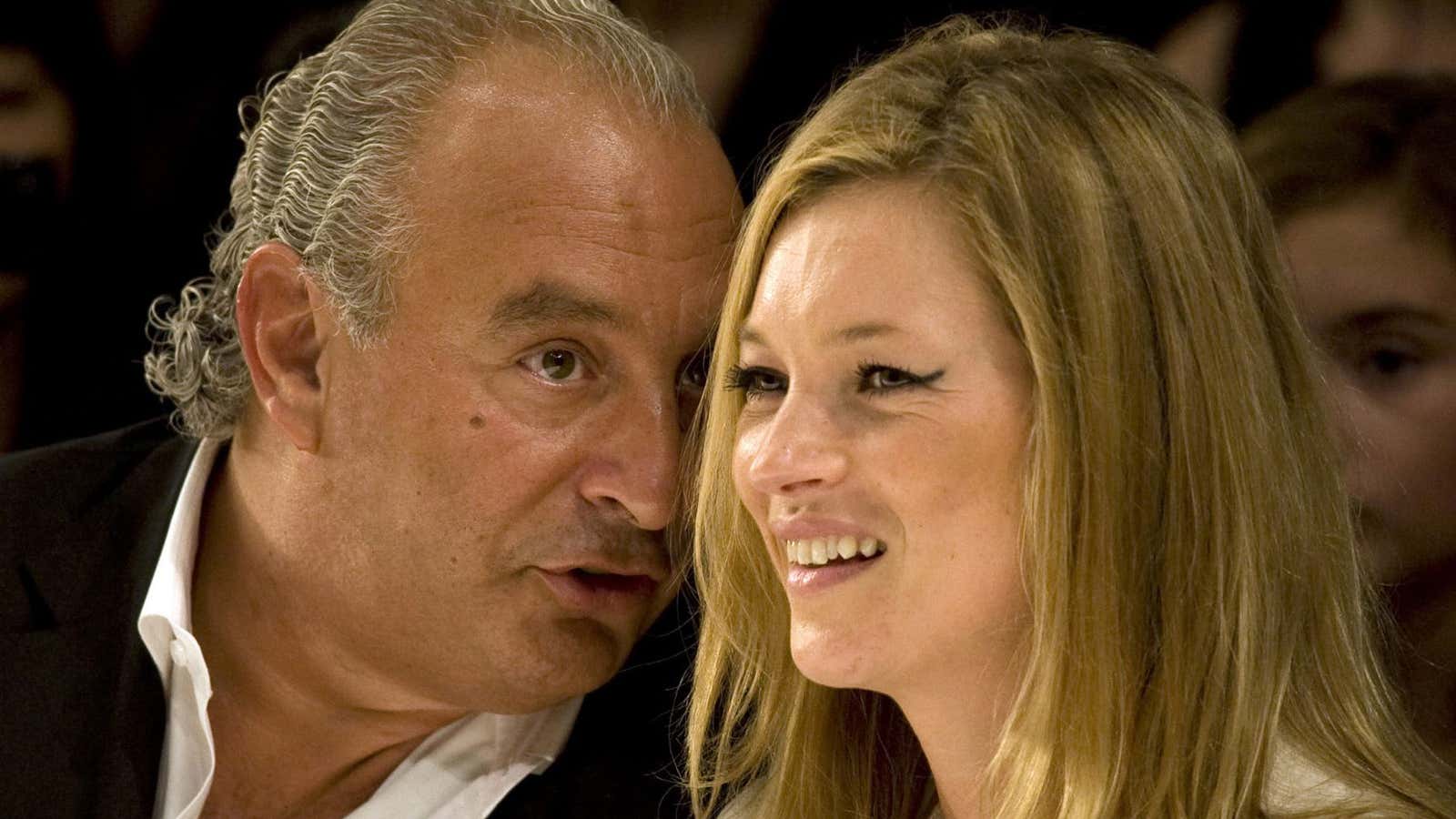Being a knight isn’t what it used to be.
In the Middle Ages, being knighted meant joining an elite society of chivalrous warriors. Now, it means keeping company with Rod Stewart and a collection of mostly anonymous business people.
Still, once the honor is given, few are eager to give it up, so it was notable that the House of Commons voted unanimously today (Oct. 20) to strip a knighthood from Sir Phillip Green, the billionaire owner of Topshop and the Arcadia retail empire.
Green is in trouble over the collapse of the BHS department store chain, which he bought in 2000 and sold last year for essentially nothing. The chain went out of business in April, putting 11,000 people out of work and leaving an unfunded pension deficit of 571 million pounds ($698 million).
Members of parliament has demanded that Green use his personal fortune to cover his former employees’ pensions; his refusal prompted scrutiny of his knighthood.
Noting that Green was knighted in 2006 for services to retail, MP Frank Field said he could find no evidence Green deserved the honor. “He was a very, very, successful asset stripper,” Field said, according to the Guardian. MP David Winnick called Green “a billionaire spiv who has shamed British capitalism.”
The vote was only advisory, as a special committee made up of civil servants has the power to revoke knighthoods, with the final authority resting with Queen Elizabeth. The BBC reported that the vote “will significantly increase the pressure” on the committee to take action.
Green wouldn’t be the first businessman to lose the honor. Fred Godwin, the former CEO of the Royal Bank of Scotland, which collapsed and was nationalized in the financial crisis, and Owen Phillipps, a shipping mogul jailed for fraud in the 1930s, previously lost knighthoods.
Knighting executives brings with it the risk they’ll later be revealed as crooks or scoundrels. But it also allows for the symbolic ritual of stripping them of their honors.
When Wells Fargo CEO John Stumpf retired last week, he was given a hearty send off from the board, which was eager to pretend nothing was amiss. Think how much more satisfying it would have been for Stumpf to lose a knighthood instead.
